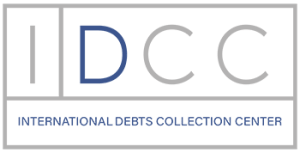Nowadays, many businesses opt to outsource their debt collection efforts due to a lack of workforce and experience or the associated costs. Hiring a collection agency frees up your staff’s valuable time to focus on other parts of the business where they are more trained, rather than on collecting calls. When hiring a collection agency, ask the following questions to ensure the firm is a good fit for your business:
Are they submitting information to credit bureaus?
An International debt collection agency may use its reporting capability to credit bureaus to report overdue bills. In general, a debt or overdue account may hurt a debtor’s credit score for up to seven years—which is why debtors frequently agree to payment plans to minimize credit-score harm
Do you serve my industry?
It’s a good idea to understand the sorts of businesses with whom the collection agency has worked. Have they already worked with your industry? Are they willing to offer references?
What is expected of me as a client?
Typically, agencies will demand the debtor’s name, contact information, the sum due for collection, any contractual agreement or signed paperwork admitting the obligation, and other necessary evidence. Any interaction you have with the consumer regarding the outstanding debt is also critical to the agency.
How will they collect the debt?
Your reputation is critical, and you want to be certain that the debt collector does not utilize collecting practices that are detrimental to it. For example, refusing to bargain with a debtor experiencing financial difficulties is not unlawful, but you may not feel comfortable with it.
Verify that medical providers are HIPAA compliant.
If you’re considering using an International collection agency to help you recover outstanding medical bills, be certain the service is HIPAA compliant. The Health Insurance Portability and Accountability Act (HIPAA) establishes a minimum standard for the security of sensitive patient data.
Debt Collections services is a highly specialized profession that requires meticulous planning, preparation, training, policy, and procedure. For these reasons, most top-tiered collection firms employ legal departments that are well-versed in all facets of debt collector law, including consumer protection and privacy, litigation, contracts, and federal laws and regulations.
The alignment of operations, compliance, technology, experience, and certification helps agencies deliver a good return on investment, brand protection, and customer retention to clients. Before employing a collection firm, each of these considerations should be addressed separately and in combination.








